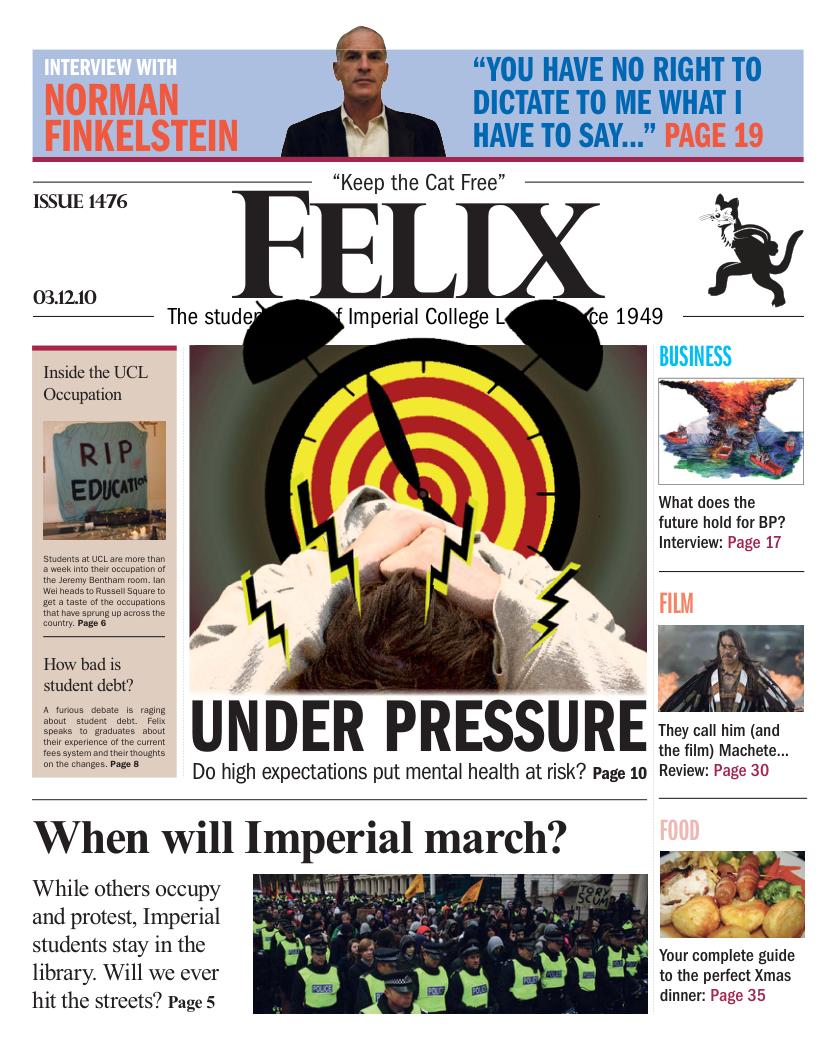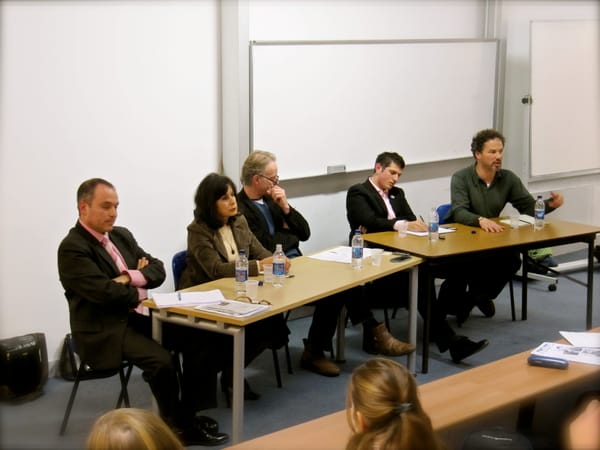Norman Finkelstein on Hamas, boycotts and liberty
“I’m sorry, but you have no right to dictate to me what I have to say.”

You’ve said previously that there is a possibility of resolving the Arab-Israeli conflict and it’s not an eternal conflict that can’t be resolved. What keeps you so optimistic?
First of all you have to see if there are basic principles which people can agree on to resolve the conflict. On the basic principles, you have widespread agreement, whether you look at the voting record of the U.N. General Assembly, whether you look at what the Arab League has said, what the Organisation of the Islamic Conference has said, or whether you look at the advisory opinion of the International Court of Justice. You could look at a wide range of respected and representative bodies and they all seem to agree on how to resolve the conflict, and judging from that record the main obstacle is Israel and the United States. And, at least in the United States, you can see significant shifts in public opinion. We’re still in the early stage but there seems to be the prospect that we can reach public opinion if we’re reasonable and if we’re principled. We can reach public opinion and maybe force a settlement on the Israelis who are blocking it.
The Jerusalem Post published an article about the Justice Week here at Imperial College, attacking it as anti-Western and criticising some of the choice of speakers and event themes. Do you feel that they have a point or are they unjustified in their attacks?
Well, first of all the Jerusalem Post is not a newspaper. It’s just a propaganda rack. Nobody takes it seriously. It’s very rarely cited, nowadays. There was a time when it was under fairly liberal publishers up until the early nineties. Then it was a reputable paper. But now, you read it for laughs; it’s like the comic section of the newspaper. Although, occasionally, you know there’s an expression in English “Even a broken clock is right twice a day,” and once or twice a month there’s actually something in the Jerusalem Post of some interest.
You frequently attack and deconstruct Zionist propaganda, yet you seem uncritical of Palestinian propaganda by organisations such as Hamas. Do you feel that this also needs to be deconstructed?
Well, first of all, I’m old fashioned. You don’t deconstruct, you critically analyse. I think that people are using this ridiculous French terminology and in French, everything is empty.
So I critically analyse the Israeli propaganda as though there is only one fundamental issue, which is settling the conflict. I don’t know much about internal Israeli society. I follow public opinion polls on support or not support for the settlement but, in general, my range is pretty limited. I’m interested in the foreign policy issues and, otherwise, I don’t particularly care. The same thing with the Palestinians; I don’t really know much about internal Palestinian society. I’m just looking at who’s blocking the settlement.
In 2008 Israel banned you from entering the country for 10 years. Here in the U.K., the government has also recently banned individuals like Geert Wilders and Zakir Naik. Are such actions ever justified, or is there an infringement on freedom of speech when governments do these things?
No, they’re never justified. I’m not a flag waver but probably it’s one of the virtues of the United States that there’s a much broader conception of liberty of speech. The media are much narrower but at least conceptually we’re pretty conventional on issues of Freedom of Speech and on the whole it’s much better. There have been cases of political people we’ve banned from entering the country. But, in terms of range of viewpoints, it’s pretty broad in the U.S.; at least what’s permissible. That doesn’t mean there’s a range of viewpoints on the television or radio – no there is not. But what’s permissible, and I think that’s sensible. I mean the basic principles of John Stuart Mill’s ‘On Liberty’ I think is right. The arguments he makes in free, unfettered speech, I think are correct. I don’t really accept there are any grounds for banning anyone. But that doesn’t mean you can’t have an opinion. You can say that Geert Wilders is what he is; a really nasty piece of work. But a nasty piece of work should have the right to speak.
What would you say to people who would describe you as delivering hateful messages?
Well, what I would say is that people have the right to deliver hateful messages. There’s not any prescription in free speech only delivering love filled messages. I happen to think they’re not hateful, I happen to think they’re factual. I happen to think they’re actually not even particularly radical. They’re pretty mainstream in my opinion. But even if that were not the case and even if you interpret them as being hateful, well there are two possibilities. Either they’re hateful of the abstract, in which case they still have the right to say it, but then they may be hateful in the specific sense that you’re doing hateful things. So, you’re evoking a hateful reaction. I hate injustice – so I have a hateful message for those committing injustice. I hate injustice, I hate suffering. So it’s hateful, but I think that’s permissible-hateful. But, even if it were just hateful-hateful, it’s still allowed. I’m sorry, but you have no right to dictate to me what I have to say.
Thousands of students across the U.K. participate in activities like Palestine days, Gaza awareness weeks, fundraising or Boycott Israeli goods. They believe they are making a positive difference. What would be your message to them?
First of all, I have faith in the reasoning capacities and judgement of young people. I don’t really like to try to lecture them on what they should do. I’ll give my opinion but also I want to respect other people’s political and intellectual autonomy.
On the question of tactics, I support the boycotts which are anchored in international law. So, if the settlements are illegal, settlement products are illegal, marketing those products is illegal and the protesting the marketing of illegal products from illegal settlements, I think is perfectly legitimate. Under international law, it’s illegal to transfer weapons to a country which is a consistent violator of human rights. Israel is, according to Amnesty International, a consistent violator of human rights and Amnesty International says there has to be a comprehensive total arms boycott on Hamas and Israel. So, the protesting of arms transfers from the U.K. to Israel, I supported. That’s the law.
But when you start going towards political boycotts which include anything and everything Israeli, I consider that problematic because if you were saying ‘I’m boycotting anything Israeli until the end of occupation’, I could see that. The problem is people don’t say ‘until they end the occupation.’ They say ‘we’re boycotting anything Israeli’ and then you’re not really clear. Do they want to dismantle the occupation or do they want to dismantle Israel? I don’t support dismantling Israel. Yes, Israel does horrible things, but so does the U.K. and whatever Israel does that’s horrible, it’s a tiny fraction of what the U.S. does that’s horrible every minute, of every hour, of every day. So, since I don’t see any boycotts calling for the dismantling of the United States, or the dismantling of the U.K. , then I’m not supporting the dismantling of Israel. There’s a deliberate ambiguity about whether you want to end the occupation or whether you want to end Israel.








